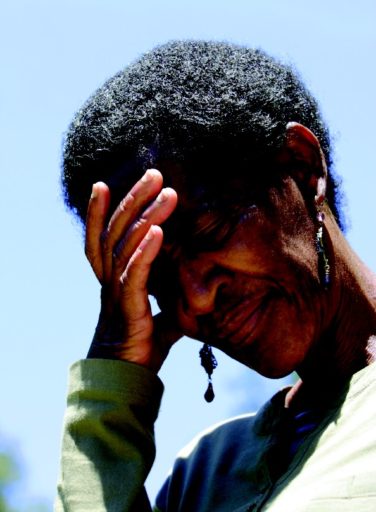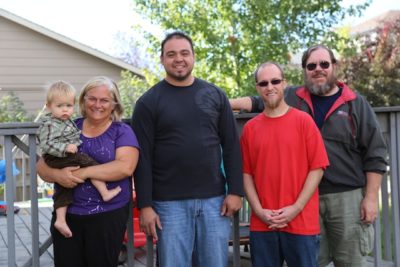
“But when Peter came to Antioch, I withstood him to his face, because he was to be blamed. For before certain ones came from James, he ate with the Gentiles; but when they had come, he withdrew and separated himself from them, fearing those who were of the Circumcision.” Galatians 2:11-12
“In those days when the number of disciples was increasing, the Hellenistic Jews among them complained against the Hebraic Jews because their widows were being overlooked in the daily distribution of food.” Acts 6:1
One doesn’t have to read very far in the New Testament to discover that the early church struggled mightily with racial conflict. The superior attitude Jewish believers had toward their fellow Gentile believers pervaded every interaction they had with each other.
Racial conflict infected how Jews and Gentiles worshiped and socialized. The resulting division stained their testimony in the outside world and threatened to mire the church in Jewish legalism.
Fortunately, the early church did two things that helped resolve the racial tensions ragging within it and rescue the church from the brink of disaster.
First, the early church overcame its racial prejudice by attending to its theology.
One of the first theological issues the early church had to deal with was the question of whether Gentiles had to be circumcised – and, thus, come under Judaic law – in order to be saved. In other words, whether Gentiles had to become Jews in order to be Christians.
The answer the church gave at the Jerusalem council to this question was a resounding “No!” People are saved through faith alone, apart from works of the law. “So, in Christ you are all children of God through faith,” Paul wrote in Galatians 3:26.
The racial implications of this doctrine are profound. No race is superior to another, and that includes Jews. “There is neither Jew or Gentile, neither slave or free, nor is there male or female, for you are all one in Christ Jesus,” Galatians 3:28.
But the early church didn’t just theorize about racial equality by discussing the implications of justification by faith in Christ alone, it also acted out these implications in a specific way.
Second, Jews and Gentiles in the early church overcame racial prejudice when both Jews and Gentiles took responsibility for each other’s widows.
When it was brought to the attention of the Jerusalem church that it was ignoring its Hellenistic (i.e., Gentile) widows in the distribution of food, it appointed both Jewish and Gentile men to be deacons who would serve both Jewish and Gentile widows, Acts 6:1-6. (Steven and Philip are Jewish names, Procorus, Nicanor, Timon, Parmenas are Gentile names. And Nicolas was a Gentile convert to Judaism.)
That is, the doctrine of justification by faith alone resulted in a leveling of races; an equality that was practically expressed by both Jews and Gentiles caring for each others’ widows together.
At this point, I want to illustrate from my own life why multiple races serving together their widows is important.
I have written in the past about my experience growing up in a black neighborhood. It was difficult and dangerous. For example, someone tried to burn our home down and on another occasion my mother and father were carjacked at gunpoint. Just two examples among many other terrible incidents.
But over the forty years my mother and father lived in that black community, I never once heard them say anything negative about blacks. Instead, when an attack came, Mom and Dad would say something like, “That person must be from outside our neighborhood. Our black neighbors are good people.” Mom and Dad truly lived out their Christian faith when it came to racial issues.
The day eventually came when I and my four older siblings moved out and started our own lives. When Mom passed away, Dad continued to live alone in that increasingly dangerous neighborhood and we were all concerned. But no matter what we said, Dad refused to move.
When the Rodney King riots happened in 1992, my father, who was by that time in his 80’s, got caught in his home within the exclusion area that was cordoned off by the national guard and we couldn’t get to him. Our concern skyrocketed.
However, after the riots ended, we discovered that Dad’s black neighbors had checked in on him every day to make sure he was okay.
I can’t tell you how healing that was to my soul. It still brings tears to my eyes when I think about it. My widowed father’s black neighbors took him under their wing.
Recently my wife and I moved to a new home to better care for her mother, who also lives with us. One of our neighbors is a black man who lives alone and has asthma. Since he’s in a high risk caronavirus category, he is isolating himself in his home.
I called him last night to see how he’s doing and whether he needs anything from the store. “Time to pay it back.” I thought, after I hung up.
This post first appeared in NewCommandment.org.

Since 2003 New Commandment Men’s Ministries has helped hundreds of churches throughout North American and around the world recruit teams of men who permanently adopt their widowed and single parents in their congregations for the purpose of donating two hours of service to them one Saturday morning each month. We accomplish this with a free training site called New Commandment Men’s Ministry
Learn how to mobilize your men’s ministry to meet every pressing need in your church here.
_______________________________________________________________

Learn how to form teams of men for every widow, single mom
and fatherless child in your church at NewCommandment.org.
_______________________________________________________________
2 thoughts on “How the Early Church Overcame Its Racial Prejudice”
Good lesson, pastor.
I’d like to add the lesson of the Good Samaritan – Jesus answered the question “Who is my neighbor?” with a story of a Samaritan caring for a Jew. But …
To the Jewish mind, Samaritans were a different nation, religion, and race. So …
If you aren’t trying to love people who are different from you in just about every way, you aren’t doing this Jesus thing right. “Love your neighbor as yourself” is the single most important law, after loving God, and Jesus chose to illustrate that law with a “neighbor” who was not at all like the person loved.
Excellent point, Dean. Love this comment.